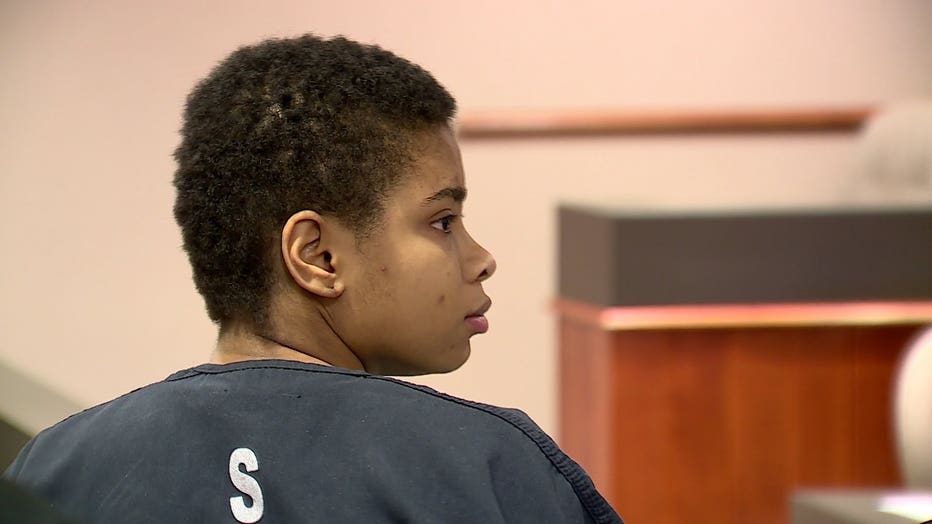Wisconsin Supreme Court OKs sex trafficking as homicide defense

Supreme Court: Chrystul Kizer sex trafficking can be defense for homicide
Chrystul Kizer and her attorneys have insisted there has always been more to the story than the killing alone. They say the man she killed, Randall Volar, was sexually abusing and trafficking her. Now, attorneys can use that as a "complete defense" should the case go to trial.
KENOSHA, Wis. - The Wisconsin Supreme Court ruled on Wednesday, July 6 that a state law meant to provide immunity to human trafficking victims can now be used as a defense in court.
In a high-profile Kenosha homicide case, 22-year-old Chrystul Kizer and her attorneys have insisted there has always been more to the story than the killing alone. They say the man she killed, Randall Volar, was sexually abusing and trafficking her. Now, attorneys can use that as a "complete defense" should the case go to trial.
For most of the past two years, Kizer's case has effectively been on hold at the Kenosha County Courthouse while waiting for Wednesday's Wisconsin Supreme Court decision.
SIGN UP TODAY: Get daily headlines, breaking news emails from FOX6 News
"I think it puts her in a relatively stronger position than she was in before," said Marquette University Law Professor Chad Oldfather.
In June 2018, the then 17-year-old Kizer was charged with shooting and killing the 34-year-old Volar. Prosecutors say she started his house on fire and stole his car, and have argued the killing was pre-meditated.

Chrystul Kizer
"This defendant was downloading an app to be sure she has access to the Kenosha Police Department scanner," said Kenosha County District Attorney Michael Graveley.
However, Kizer's attorneys say her actions were a response toward Volar's treatment of her. Court records show Volar met Kizer on a sex-trafficking site, molested her and sold her as a prostitute.
Justices ruled 4-3 that a 2008 state law that absolves trafficking victims of criminal liability for any offenses committed as a direct result of being trafficked extends to first-degree intentional homicide. However, they said Kizer must first provide evidence for a trial judge that her decision to kill Volar was connected to being trafficked before she can invoke immunity.
FREE DOWNLOAD: Get breaking news alerts in the FOX6 News app for iOS or Android.
"It's potentially a pretty powerful defense, because all she has to do in order to be able to raise it, is to come up with what the court calls 'some evidence,'" Oldfather said.
The court ruled it is an "affirmative defense," meaning Kizer could be acquitted. It now clears the way for the case to proceed. Kizer is due back in court for a status hearing on Sept. 9.
Sex trafficking victims' advocates called the court's Wednesday decision a win.

Arson scene in homicide of Randall Volar
"You see an understanding from all of the justices of the sort of complex dynamics that happen within the human trafficking experience," said Caitlin Noonan, staff attorney with Legal Action of Wisconsin.
Kizer's attorneys said in a statement:
"Chrystul Kizer deserves a chance to present her defense and today’s decision will allow her to do that. While the legal process on this matter is far from over, we, along with Chrystul and her family, believe the decision today affirms the legal rights provided by Wisconsin statute to victims of sex trafficking facing criminal charges."
Graveley had no comment on the ruling.
The case for immunity
Kizer’s attorneys had planned to invoke Wisconsin’s immunity law at her trial, but Kenosha County Circuit Judge David Wilk refused to allow it. He ruled that immunity extends only to trafficking-related charges such as restraining someone, extortion, prostitution or slave labor. An appellate court ruled last year, however, that Kizer could argue that the law shields her from prosecution.
State attorneys asked the high court to reverse that decision, maintaining that the immunity statutes can’t possibly extend to homicide. Assistant Attorney General Timothy Barber argued in March that Kizer’s interpretation would create an unprecedented expansion of the self-defense doctrine, eliminating any questions about whether killing someone was reasonable or necessary.

Wisconsin Supreme Court chambers
The court found that the extent of trafficking victims’ immunity is ambiguous but doesn’t include any limiting language and therefore applies to homicide. If Kizer can show a connection between her actions and being trafficked, prosecutors will have to prove beyond a reasonable doubt that the defense doesn’t apply, the court said.
Nearly 40 states have passed laws that give trafficking victims at least some level of criminal immunity, according to Legal Action of Wisconsin.
The Associated Press contributed to this report.

